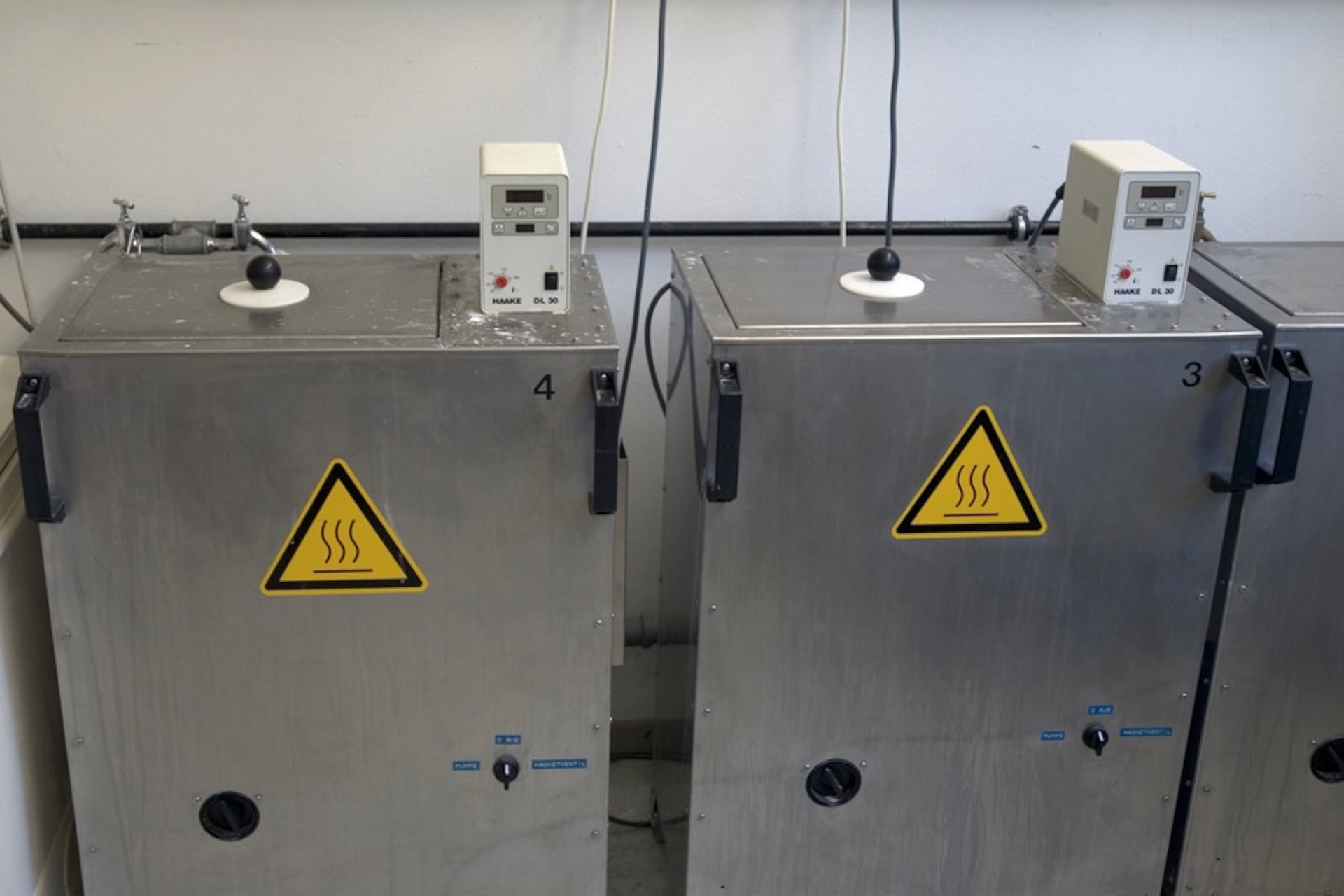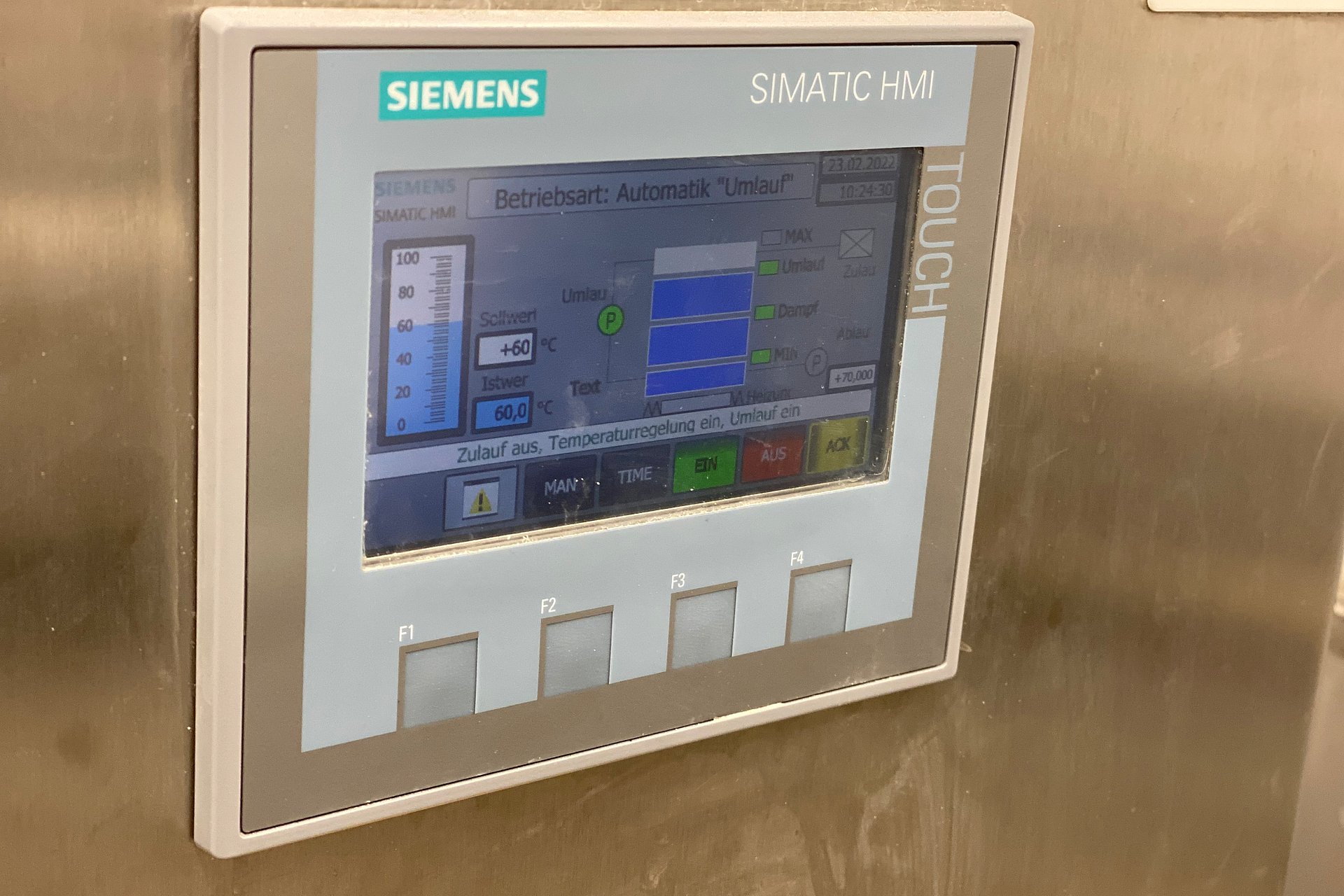Medial-thermal exposure
During the medial-thermal ageing of plastics in media or at elevated temperatures, no external stresses are applied. The test specimens or components are freely washed around by the medium. Depending on the test set-up, the media can be changed regularly. The ageing can also be carried out at elevated temperatures. On the one hand, this leads to an accelerated physical or chemical ageing, on the other hand, an increased temperature can be the prerequisite for an activation of the ageing processes.
With our existing containers, we can realise the most diverse test conditions for the ageing of test specimens and (small) components. Accompanying this, we offer the evaluation of changes in surface properties, light microscopic observation and documentation of crack formation and changes in colour and gloss.

Fundamentals
Ageing without external stresses can take place in the medium, at elevated temperature, in water vapour (steam), in water, in a cyclic alternating stress of temperature and humidity or also in a standard climate.
The stability of polymer materials against media is very much dependent on the type, structure and composition of the plastics. In addition, the media stability is influenced by the formation of internal stresses during processing and the ageing temperature.
When testing the resistance of plastics, a distinction is made between a resistance test without the application of an additional external stress (ageing, immersion test) and with the application of an additional external, mechanical stress (stress crack resistance, stress corrosion cracking).
Sample preparation
- Punching of test specimens
- Fixing the test specimens in the sample chamber
Test conditions

- Washing lye, surfactants, oils, greases, assembly aids, cleaning agents, chemicals, etc.
- bei Raumtemperatur und erhöhten Temperaturen
- at room temperature and elevated temperatures
- constant movement of the media
- up to 95 °C
- suspended storage of the test specimens possible
- distilled water
- Tap water
- Constant movement of media possible
- Ageing over steam up to 95 °C
- Suspended mounting of the test specimens
- 23 °C, 50 % Humidity
- Determination of the water absorption
Standards
- DIN EN ISO 62
Kunststoffe – Bestimmung der Wasseraufnahme - DIN EN ISO 1110
Kunststoffe – Polyamide – Beschleunigte Konditionierung von Probekörpern
Werksnormen
- individuelle Bedingungen realisierbar
Dipl.-Wirt.-Ing. Anja Berthold
Phone: +49 (0)3461 30889-56
Write e-mail
